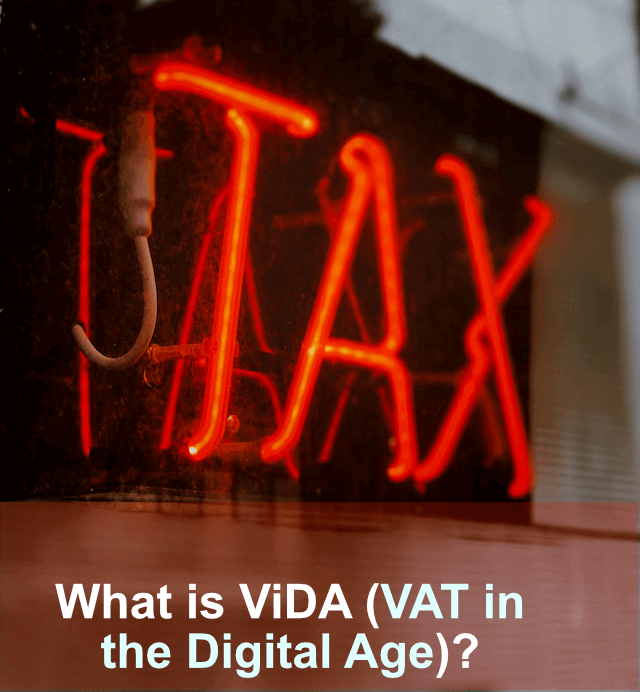EU VAT legislation has not kept pace with technological developments and the digital economy – so change is afoot with ViDA
On the 8th of December 2022, the European Commission published a set of proposed measures called ViDA (VAT in the Digital Age). As the EU VAT system has not kept up to date with advances in technology nor with the digital economy, ViDA aims to modernise it.
At present, any SME wanting to take advantage of the EU Single Market, must work with up to 27 different national VAT systems, each with their own separate reporting obligations. This can obviously involve a considerable administrative burden and financial cost for any business trying to move into other EU markets. ViDA proposes to change this to make the VAT system more efficient for businesses in addition to reducing the significant VAT gap.
ViDA essentially revolves around three key elements:
- eInvoicing and real-time digital reporting – the aim here is to harmonise VAT reporting obligations with the introduction of real-time digital reporting based on einvoicing.
- a single VAT return for trading across the EU – this will remove the requirement for multiple VAT registrations in other EU Member States with the introduction of a Single VAT Registration (SVR)
- the platform economy – this concerns the short-term accommodation and passenger transport sectors. The platform itself will be defined as being responsible both for the collection of VAT (when service providers do not collect), and for remitting the collected VAT to tax authorities.
ViDA: EU-wide eInvoicing
ViDA includes specific dates for the einvoicing proposals beginning in 2024.
From January 2024
Member States may impose einvoicing obligations without prior mandatory authorisation by the tax authorities – which is currently required in most Member States.
The einvoices shall be permitted to be issued in compliance with the European Standard EN 16931 (relevant at present for B2G transactions) according to the requirement included in the EU Directive 2014/55/EU. The issuance of these einvoices won’t depend on their acceptance by the recipient of the einvoice.
From January 2028
As of January 1st 2028, einvoicing would become the default system for issuing invoices for EU cross border (intra-community) supplies; with paper invoices only being permitted (if Member States opt to allow them) for certain transactions. The einvoicing requirement at present (where the issuing of an einvoice must be accepted by the recipient) will be removed.
For Irish businesses, it will be extremely important to continue to closely monitor the developments around this legislative proposal. However, if ViDA does indeed become a reality, it will push significant change within businesses right throughout Europe and will mean that the digital transformation of financial systems and the shift to electronic invoices will need to be at the forefront of all business agendas going forward.
Celtrino offers advanced EDI invoicing solutions that help businesses manage VAT compliance, streamline invoicing processes, and improve transaction accuracy. To learn more about our EDI invoicing solutions, contact us today.



